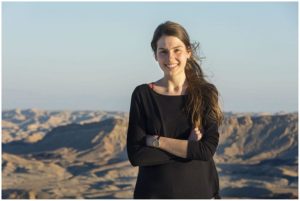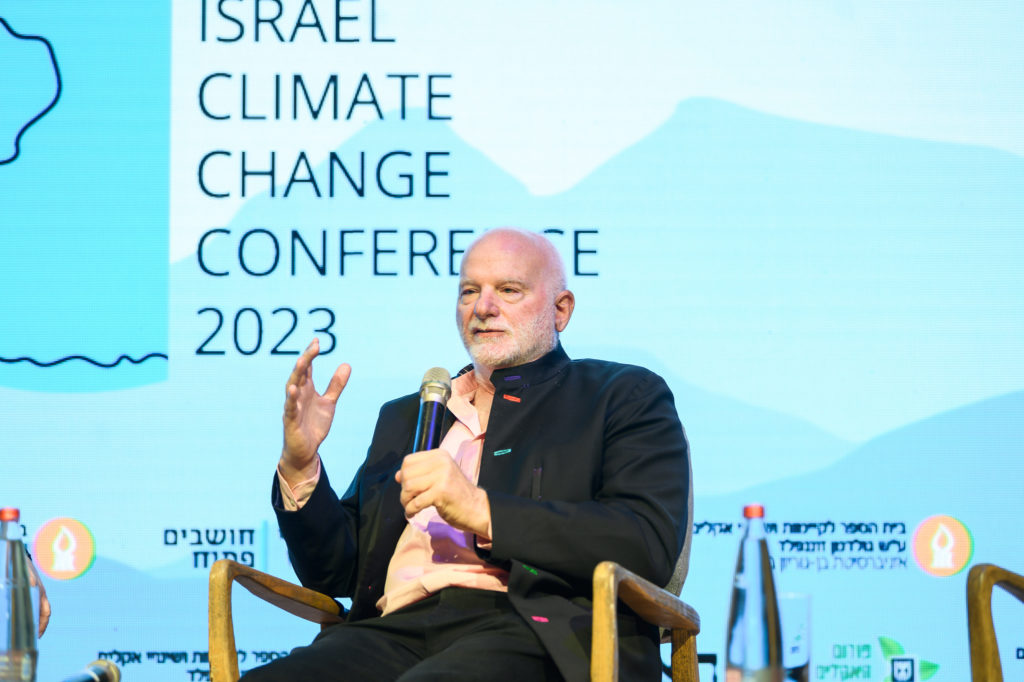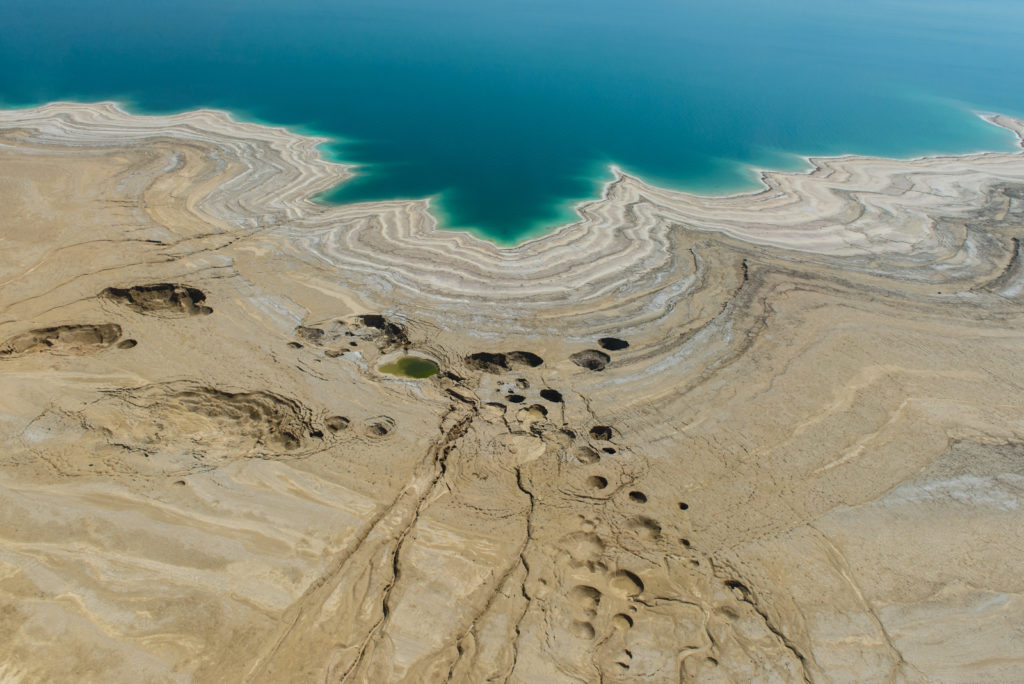
BGU Researchers Improve Performance of Solar Panels
BGU Researchers Improve Performance of Solar Panels
December 16, 2019
Desert & Water Research, Nanotechnology
Breaking Israel News — Taking a cue from the self-cleaning properties of the lotus leaf, researchers at Ben-Gurion University of the Negev (BGU) have shed new light on microscopic forces and mechanisms that can be optimized to remove dust from solar panels to maintain efficiency and light absorption.
The new technique removed an amazing 98% of dust particles.

Tabea Heckenthaler, master’s degree student at the Zuckerberg Institute for Water Research at BGU’s Jacob Blaustein Institutes for Desert Research
“In nature, we observe that the lotus leaf remains dust and pathogen-free due to its nanotextured surface and a thin hydrophobic (“water-fearing”) wax coating that repels water,” says Tabea Heckenthaler, a master’s degree student at the Zuckerberg Institute for Water Research at BGU’s Jacob Blaustein Institutes for Desert Research.
“In the desert, dust accumulates on the surface of solar cells and it’s labor-intensive to clean them constantly, so we’re trying to mimic this behavior on a solar cell,” noted Heckenthaler, whose adviser was Dr. Yair Kaufman.
In a new study published in the journal ACS Langmuir, the researchers confirmed that changing the surface properties of solar panels could significantly minimize the amount of dust remaining on the surface and increase the potential of solar energy harvesting applications in the desert.
Dust adhesion on solar panels is a major challenge to energy harvesting through photovoltaic cells. New solutions are necessary to maintain maximum collection efficiency in high dust density areas such as the Negev desert in Israel.
The researchers looked into the effect of modifying a silicon substrate (Si) – a semiconductor used in photovoltaic cells – to mimic the self-cleaning properties of the lotus leaf, as water rolls down the leaves and removes contamination.
Other BGU researchers who contributed to “The Self-Cleaning Mechanism: Why Nanotexture and Hydrophobicity Matter” include Prof. Muhammad Bashouti, Sumesh Sadhujan and Prakash Natarajan of BGU’s Swiss Institute for Dryland Environmental and Energy Research, and Yakov Morgenstern from the Zuckerberg Institute.



